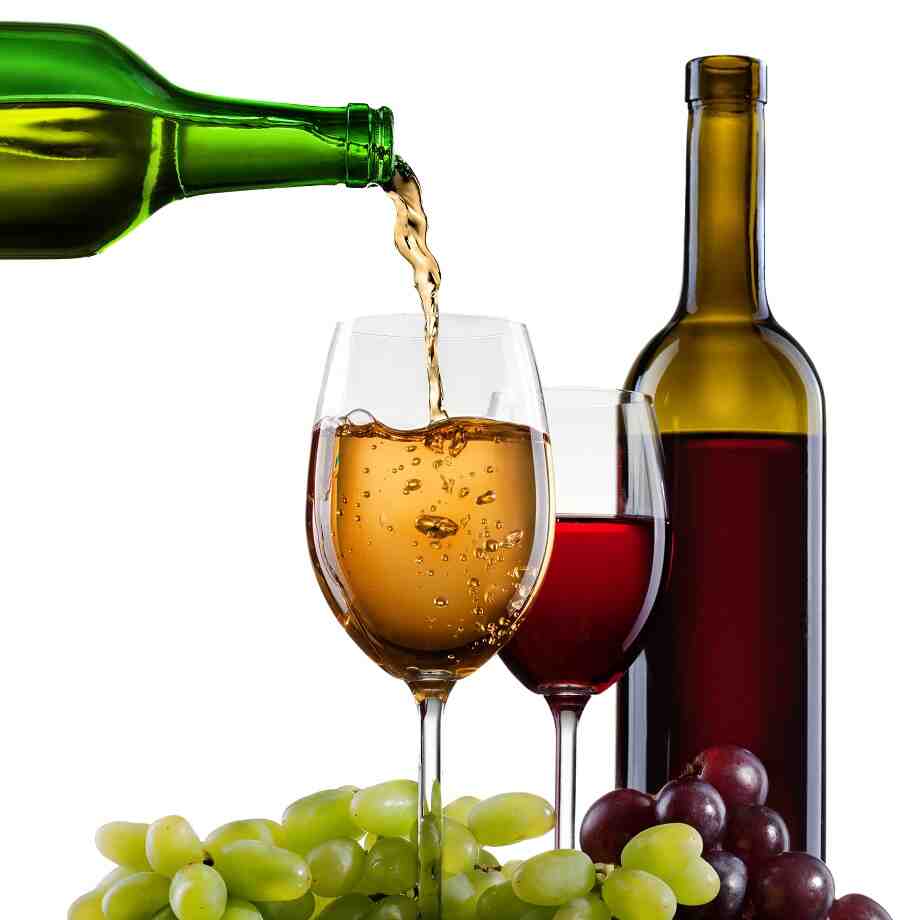How Sustainable Practices Are Shaping the Wine Industry
The wine industry, like many others, is undergoing a significant transformation as sustainability becomes a key focus in response to both environmental challenges and changing consumer preferences. From vineyard management to packaging and distribution, sustainability is influencing every stage of wine production. As the global wine market continues to grow, so does the need for responsible practices that minimize environmental impact while maintaining the quality and flavor that wine lovers expect. In this article, we’ll explore how sustainable practices are shaping the wine industry and why they are becoming increasingly important.
The Growing Demand for Sustainable Wine
Over the past few decades, there has been a rising awareness of environmental and social issues among consumers. People are more conscious than ever about how the products they purchase affect the planet and its inhabitants. Wine is no exception. In fact, the wine industry has seen a significant shift as consumers demand wines that are produced with a focus on sustainability, ethical practices, and environmental stewardship.
- Eco-Conscious Consumers: More wine drinkers are seeking out eco-friendly wines, with a preference for organic, biodynamic, and sustainably farmed options. Consumers are willing to pay a premium for wines that align with their values, particularly when it comes to issues like climate change, water usage, and land conservation.
- Certifications and Labels: To meet the growing demand, many wineries are turning to certifications like organic, biodynamic, Fair Trade, and sustainable agriculture to show that they are committed to ethical and environmentally responsible practices. These labels provide transparency and reassurance for consumers looking for wines that are produced with the environment and society in mind.
Sustainable Vineyard Management: Reducing Environmental Impact
At the heart of sustainable wine production lies the vineyard itself. Vineyards are sensitive ecosystems that require careful management to minimize their environmental impact. Sustainable practices in the vineyard aim to preserve soil health, reduce pesticide use, conserve water, and protect biodiversity. Some of the most prominent practices include:
1. Organic and Biodynamic Farming
Organic farming avoids the use of synthetic pesticides, herbicides, and fertilizers, relying instead on natural methods to control pests and nourish the soil. Biodynamic farming takes it a step further by integrating spiritual and ecological principles, considering the vineyard as a holistic system that operates in harmony with the cosmos and the environment.
- Soil Health: Both organic and biodynamic practices emphasize the importance of healthy, fertile soil. This is achieved through composting, crop rotation, and the use of cover crops that enrich the soil with nutrients and prevent erosion. Maintaining soil health is critical for producing high-quality grapes, and it also helps reduce the need for chemical interventions.
- Pesticide Reduction: Organic and biodynamic vineyards significantly reduce their use of pesticides and fungicides, opting for natural alternatives like neem oil or garlic sprays. This reduces the environmental impact of chemical runoff and improves the health of local wildlife.
2. Water Conservation
Water is one of the most precious resources in wine production, especially in regions that experience drought or water scarcity. Sustainable vineyards are increasingly adopting innovative practices to conserve water and reduce their reliance on irrigation systems.
- Drip Irrigation: One common technique is drip irrigation, which delivers water directly to the roots of the vines, minimizing evaporation and waste. This precise method helps conserve water while ensuring the vines receive adequate hydration.
- Rainwater Harvesting: Some wineries have implemented rainwater harvesting systems to collect and store rainwater, which can then be used to irrigate the vines. This reduces the need for groundwater or municipal water supplies, lowering the vineyard’s water footprint.
- Drought-Resistant Grapes: Research is ongoing into developing grapevine varieties that are more resistant to drought and require less water to thrive. This innovation could be a game-changer for regions experiencing water scarcity, allowing them to continue producing quality wine while conserving water.
3. Renewable Energy and Greenhouse Gas Emissions
The wine production process, from vineyard operations to wine cellars, can be energy-intensive, particularly when it comes to refrigeration, heating, and transportation. Wineries are increasingly adopting renewable energy sources and implementing energy-efficient practices to reduce their carbon footprint.
- Solar Power: Many wineries are installing solar panels to generate their own electricity, reducing their dependence on fossil fuels. Some wineries even go as far as to become net-zero energy producers, meaning they generate as much renewable energy as they consume.
- Energy-Efficient Equipment: In the cellar, wineries are using energy-efficient machinery for tasks like pressing grapes, bottling, and refrigeration. By upgrading to more efficient equipment, wineries can significantly reduce their energy consumption and greenhouse gas emissions.
- Carbon Offsetting: Some wineries are investing in carbon offsetting programs to balance out their emissions. These programs include initiatives like planting trees or funding renewable energy projects, which help absorb or reduce the carbon emissions generated by wine production.
Sustainable Packaging: Reducing Waste and Carbon Footprint
Packaging is another area where the wine industry is focusing its sustainability efforts. Glass bottles, which are traditionally used for wine, are heavy and energy-intensive to produce, transport, and recycle. As a result, many wineries are exploring alternative packaging materials and designs that reduce waste and environmental impact.
1. Lighter Bottles
One simple yet effective way wineries are reducing their carbon footprint is by using lighter bottles. By cutting down on the weight of glass bottles, wineries can reduce the energy required for transportation, lowering their overall carbon emissions. Lighter bottles are particularly beneficial for wines that are transported over long distances.
2. Alternative Packaging Materials
Some wineries are turning to alternative packaging options like Tetra Pak, bag-in-box, and cans. These options are lighter, more efficient to transport, and often have a smaller carbon footprint than glass bottles. Cans, for example, are 100% recyclable and take up less space in landfills, making them a more sustainable option for certain wine products.
3. Eco-Friendly Labels and Closures
Wine labels, corks, and capsules are often made from materials that can be difficult to recycle, such as plastic and synthetic corks. Wineries are increasingly using eco-friendly labels made from recycled paper or materials that are biodegradable. Some wineries are also switching to natural corks or recycled corks, which have a lower environmental impact than synthetic alternatives.
Sustainable Wine Production and Social Responsibility
Sustainability in the wine industry isn’t limited to environmental practices; it also includes social responsibility. Many wineries are embracing ethical labor practices, fair trade standards, and community support to ensure their operations contribute to a better world.
1. Fair Labor Practices
Sustainable wineries are committed to providing fair wages and safe working conditions for their employees. Some wineries go beyond legal requirements by offering additional benefits, such as healthcare, education programs, and housing assistance for seasonal workers. By ensuring a fair and respectful workplace, wineries help improve the lives of their workers and their communities.
2. Community Engagement and Philanthropy
Many wineries are also involved in charitable initiatives, supporting local communities, environmental conservation projects, and social causes. For example, some wineries donate a portion of their profits to environmental organizations or local schools. This sense of corporate social responsibility helps wineries build strong relationships with their communities and gives consumers a sense of confidence in the brand.
The Future of Sustainable Wine
As sustainability becomes an increasingly important priority, the wine industry will continue to innovate and adapt. The future of sustainable wine production looks bright, with more wineries embracing eco-friendly practices and pushing for industry-wide change. This includes not only improving environmental impact but also advancing social and economic sustainability to create a more equitable and responsible industry.
- Collaborative Efforts: Many wine regions and organizations are now working together to create guidelines and certifications that help standardize sustainable practices across the industry. This collaboration fosters a more unified approach to sustainability, making it easier for consumers to choose wines that align with their values.
- Consumer Education: As sustainability becomes a key selling point, educating consumers about the environmental and social benefits of sustainable wine production will be essential. This will help consumers make informed choices and encourage more wineries to adopt sustainable practices.
Conclusion
Sustainable practices are reshaping the wine industry in a meaningful way, impacting everything from vineyard management to packaging and labor practices. As consumers increasingly prioritize eco-friendly products, wineries are rising to the challenge, adopting innovative solutions that reduce environmental impact, promote social responsibility, and maintain the quality and taste that wine lovers enjoy.
By supporting wineries that embrace sustainability, consumers play a role in driving positive change, ensuring that the wine industry continues to thrive while protecting the planet for future generations. Sustainable wine is not just a trend; it’s the future of the industry, and it’s shaping the way we produce, consume, and appreciate wine in a more responsible and environmentally conscious world.









